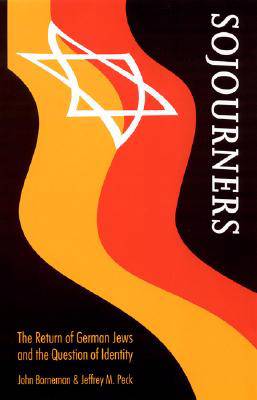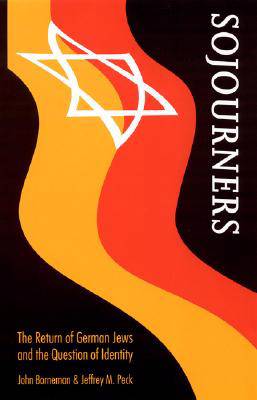
Bedankt voor het vertrouwen het afgelopen jaar! Om jou te bedanken bieden we GRATIS verzending (in België) aan op alles gedurende de hele maand januari.
- Afhalen na 1 uur in een winkel met voorraad
- In januari gratis thuislevering in België
- Ruim aanbod met 7 miljoen producten
Bedankt voor het vertrouwen het afgelopen jaar! Om jou te bedanken bieden we GRATIS verzending (in België) aan op alles gedurende de hele maand januari.
- Afhalen na 1 uur in een winkel met voorraad
- In januari gratis thuislevering in België
- Ruim aanbod met 7 miljoen producten
Zoeken
€ 106,95
+ 213 punten
Omschrijving
"A firsthand confrontation with the inner fears and the outer realities of [German Jews] as they themselves reflect post-Shoah history and experience. This is not merely lived 'history, ' it is 'history' with a living face."--Sander L. Gilman This absorbing book of interviews takes one to the heart of modern German Jewish history. Of the eleven German Jews interviewed, four are from West Berlin, and seven are from East Berlin. The interviews provide an exceptionally varied and intimate portrait of Jewish experience in twentieth-century Germany. There are first-hand accounts of the Weimar Republic, the Nazi era, the Holocaust, and the divided Germany of the Cold War era. There are also vivid descriptions of the new united Germany, with its alarming resurgence of xenophobia and anti-Semitism. Some of the men and women interviewed affirm their dual German and Jewish identities with vigor. There is the West Berliner, for instance, who proclaims, "I am a German Jew. I want to live here." Others describe the impossibility of being both German and Jewish: "I don't have anything in common with the whole German people." Many confess to profound ambivalence, such as the East Berliner who feels that he is neither a native nor a foreigner in Germany: "If someone asks me, 'Who are you?' then I can only say, 'I am a fish out of water.'" Uncertain, angry, resolute, anguished--the diverse testimonies of these people provide startling evidence that "the history of German Jews is not over."
Specificaties
Betrokkenen
- Auteur(s):
- Uitgeverij:
Inhoud
- Aantal bladzijden:
- 309
- Taal:
- Engels
- Reeks:
Eigenschappen
- Productcode (EAN):
- 9780803212558
- Verschijningsdatum:
- 1/10/1995
- Uitvoering:
- Hardcover
- Formaat:
- Genaaid
- Afmetingen:
- 182 mm x 234 mm
- Gewicht:
- 213 g

Alleen bij Standaard Boekhandel
+ 213 punten op je klantenkaart van Standaard Boekhandel
Beoordelingen
We publiceren alleen reviews die voldoen aan de voorwaarden voor reviews. Bekijk onze voorwaarden voor reviews.









